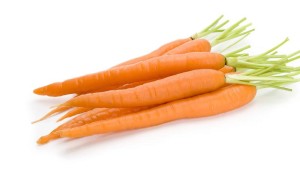Carotene is a general name for biochemical compounds that play an important role in photosynthesis, and it has two well-known forms: alpha carotene and beta carotene.
Contents
Uses
- Carotene is also used as a substance to colour products such as juice, cakes, desserts, butter and margarine. It is approved for use as a food additive in the EU (listed as additive E160a) Australia and New Zealand (listed as 160a) and the US
Benefits
- Carotenes, like vitamin A, support immune function, but in a different way. They stimulate the production of special white blood cells that help determine overall immune status. They improve the communication between cells, too, which results in fewer cell mutations. White blood cells attack bacteria, viruses, cancer cells, and yeast. Women with high levels of carotenes in their blood tend to have fewer incidences of vaginal yeast infections.
- While the liver stores retinol, excess carotenoids accumulate in the fat just beneath the skin. If you eat a lot of carotene-rich foods, you may notice a yellowing of your skin, especially on the palms of your hands and soles of your feet. This is generally considered to be harmless, though carotene-containing tanning pills used in Europe reportedly cause infertility in women.
Cautions
- Taking more than 100,000 IU betacarotene per day sometimes gives the skin a yellow-orange hue, which may look like jaundice but is not harmful. People taking beta-carotene for long periods of time should also supplement with vitamin E, as beta-carotene may reduce vitamin E levels. Supplementing with doses of over 50,000 IU of beta carotene may also decrease blood levels of lutein, lycopene and other carotenoids.
Vitamin A and carotenoids are vital to your overall health, especially for good eyesight. Just be sure you’re getting appropriate amounts of this nutrient and safeguard against overdose to avoid toxic levels, and vitamin A will work to keep your body running smoothly.
Interactions
-
- Medications used for lowering cholesterol (Statins) interacts with BETA-CAROTENE
Taking beta-carotene, selenium, vitamin C, and vitamin E together might decrease the effectiveness of some medications used for lowering cholesterol. It is not known if beta-carotene alone decreases the effectiveness of some medications used for lowering cholesterol.Some medications used for lowering cholesterol include atorvastatin (Lipitor), fluvastatin (Lescol), lovastatin (Mevacor), and pravastatin (Pravachol).
- Niacin interacts with BETA-CAROTENE
Taking beta-carotene along with vitamin E, vitamin C, and selenium might decrease some of the beneficial effects of niacin. Niacin can increase the good cholesterol. Taking beta-carotene along with these other vitamins might decrease the good cholesterol.
- Medications used for lowering cholesterol (Statins) interacts with BETA-CAROTENE
Other names
Vitamin E
References
Source: Wikipedia, https://en.wikipedia.org/wiki/Carotene
3fatchicks, http://www.3fatchicks.com/what-is-the-difference-between-beta-and-alpha-carotene/
Howstuffworks, http://health.howstuffworks.com/wellness/food-nutrition/vitamin-supplements/what-are-carotenoids1.htm

